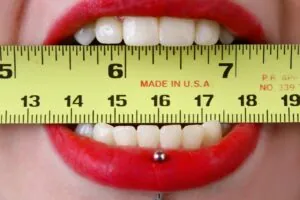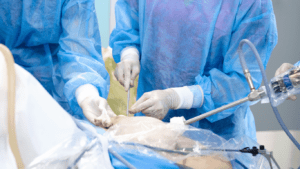General Information about Prostate Disease
The prostate is one of the most critical parts of the male reproductive system. It has many important functions, such as maintaining urine flow and transporting sperm cells. But at the same time, most men are predisposed to various prostate diseases, especially as they get older.
The most common of these are benign prostate enlargement and prostate cancer. Although the word "benign" may give us some comfort, this condition can lead to serious health problems and usually requires treatment for an enlarged prostate. Likewise, prostate cancer is a serious condition and early detection and treatment is essential.
Prostat hastalığının belirtileri genellikle idrar yapma zorluğu, ağrı ve diğer rahatsızlık verici semptomlarla kendini gösterir. Bu nedenle, herhangi bir semptomla karşılaşıldığında hemen bir sağlık profesyoneline başvurulmalıdır.
Importance of Prostate Surgery
Treatment options for prostate disease often depend on the type and extent of the disease and the patient's general state of health. In many cases, however, prostate surgery is considered the most effective treatment. Prostate surgery involves the complete or partial removal of prostate tissue and can be performed with various techniques. These techniques include open prostate surgery, closed prostate surgery and laser treatment.
One of the most important factors underlining the importance of prostate surgery is that left untreated, prostate diseases can significantly reduce an individual's quality of life and lead to serious complications. Therefore, prostate surgery is seen as one of the most important steps in resolving this situation and improving the patient's quality of life.
In conclusion, prostate health is of great importance for men's overall health and quality of life. Treating the symptoms of prostate disease quickly and effectively improves a patient's long-term health outcomes and quality of life. This is where prostate surgery comes in and, in many cases, plays a vital role in getting the right treatment.
Prostate Problem
What is prostate?
The prostate in men is a gland located around the urethra. It helps urine to move out of the bladder. It also produces the fluid that forms a component of semen. The function of the prostate is to keep all these processes running smoothly.
Function of the Prostate
The prostate is an important organ that usually goes unnoticed unless there are problems. But when things go wrong, it has the potential to negatively affect quality of life. It ensures that the muscles and nerves that pass through the urinary tract function correctly. It is also responsible for a large part of the production of the fluid secreted into semen during sexual activity.
Symptoms of Prostate Problems
Most people with a prostate problem do not usually have symptoms, but in some cases symptoms may occur. The most common symptom in people with an enlarged prostate is problems urinating. Other symptoms may include an increased need to urinate, frequent urination during the night, difficulty urinating, a feeling that the bladder is not completely empty and a weak urine stream.
Complications of Prostate Problems and Their Impact on Quality of Life
Prostate problems can seriously affect a person's quality of life. In some cases, an enlarged prostate or prostate disease can cause pain, discomfort and difficulty urinating. This can affect a person's daily life, work and even sexual function. In addition, untreated prostate problems can lead to more serious health problems.
Therefore, when symptoms of prostate problems are encountered, it is important to initiate an application within the prostate treatment options. Benign prostate enlargement surgery and prostate cancer surgery are among the treatment methods frequently performed by specialists. In conclusion, the treatment of prostate diseases requires a proactive and effective approach. Our goal in treatment is to improve patients' quality of life and minimize possible complications related to prostate diseases.
Worsening of Prostate Problems
Long-Term Effects of Untreated Prostate Problems
In men, prostate diseases, especially enlarged prostate, are becoming more common with age. If these diseases are not diagnosed and treated at an early stage, they can cause serious health problems in the long term. These problems can include increasing symptoms over time, complicated urinary tract infections, incomplete bladder emptying and even kidney damage. An enlarged prostate can have serious consequences if left untreated.
For all these reasons, if you have prostate symptoms, it is important to choose one of the prostate treatment options immediately.
Prostate Cancer Overview
Prostate cancer is the second most common cancer among men of all cancer types. It is a disease that can be successfully treated when diagnosed early, but in some cases it can develop into an aggressive form. The symptoms of prostate cancer, which is a disease of the prostate, are similar to other prostate diseases. Therefore, the importance of regular check-ups for early diagnosis should be emphasized.
Prostate Problems and Sexual Health
Prostate problems can be a factor that significantly reduces quality of life and can also negatively affect sexual health. The effects on sexual function after prostate surgery can vary depending on the type of surgery and the patient's general health. However, modern prostate surgery techniques - such as open prostate surgery, closed prostate surgery or HoLEP - are more effective in preserving sexual function.
As a result, prostate problems that are ignored not only get progressively worse at the expense of treatment, but can also have serious and lasting effects on your health. Therefore, treating prostate problems properly is often the best way forward and prostate surgery can be an important step in this regard.
Details of Prostate Surgery
What is Prostate Surgery?
Prostate surgery is often the treatment of choice for conditions such as prostate disease or an enlarged prostate. There are mainly two methods of removing prostate tissue: open prostate surgery and closed prostate surgery. Open surgery is the traditional surgical approach and is usually preferred for large prostate enlargements. Closed surgery is less invasive and allows the patient to recover faster.
When Should Prostate Surgery Be Considered?
If you have prostate symptoms, the first step is usually medication. However, if symptoms progress or do not respond to medication, prostate surgery may be considered. Individuals who do not benefit from drug treatment, have urinary problems, have stones in the urinary tract or have been diagnosed with prostate cancer are especially potential candidates for prostate surgery.
Different Techniques for Prostate Surgery
Prostate surgery is performed in big cities using various techniques. Factors such as the patient's general health condition, the size of the prostate and the severity of symptoms are taken into consideration when choosing these techniques. Techniques such as the HoLEP method and laser treatment are effective in terms of bleeding control and facilitate the patient's recovery process.
Before and After Surgery
The process experienced by the patient after prostate surgery may vary depending on the type of surgery and the patient's general state of health. The patient can usually return to normal activities within a few days, but full recovery can often take several weeks. Temporary changes in urinary control may occur after surgery and some men may experience changes in sexual function. However, the use of modern surgical techniques minimizes these effects.
It is important to get informed and seek professional medical help in making your health decisions. For anyone experiencing symptoms of prostatic urethral stricture or prostate disease, seeking more information or reviewing treatment options, a consultation with a health professional can help you make a more informed decision about prostate surgery.
Benefits of Prostate Surgery
General Improvement in Health
Prostate surgery provides an effective way to treat prostate diseases. In particular, surgery for benign prostate enlargement reduces symptoms and improves overall health. After surgery, the patient's urination process returns to normal and the risk of complications such as urinary tract infections is reduced.
Improvements in Quality of Life
After prostate surgery, patients often report a marked quality of life improvement. When prostate symptoms such as pain when urinating, irregular urine flow or frequent urination are reduced, patients lead a more comfortable life and perform their daily activities normally.
Reducing Complications
If left untreated in time, prostate diseases can lead to urinary tract infections, kidney damage and other serious health problems. Prostate surgery has the potential to prevent these complications. The growth of the prostate can be controlled and urine flow can be improved, which reduces the risk of urinary tract infections.
Therefore, by taking a proactive approach to prostate diseases and considering prostate surgery, you can take an important step towards preserving your quality of life and preventing health complications.























